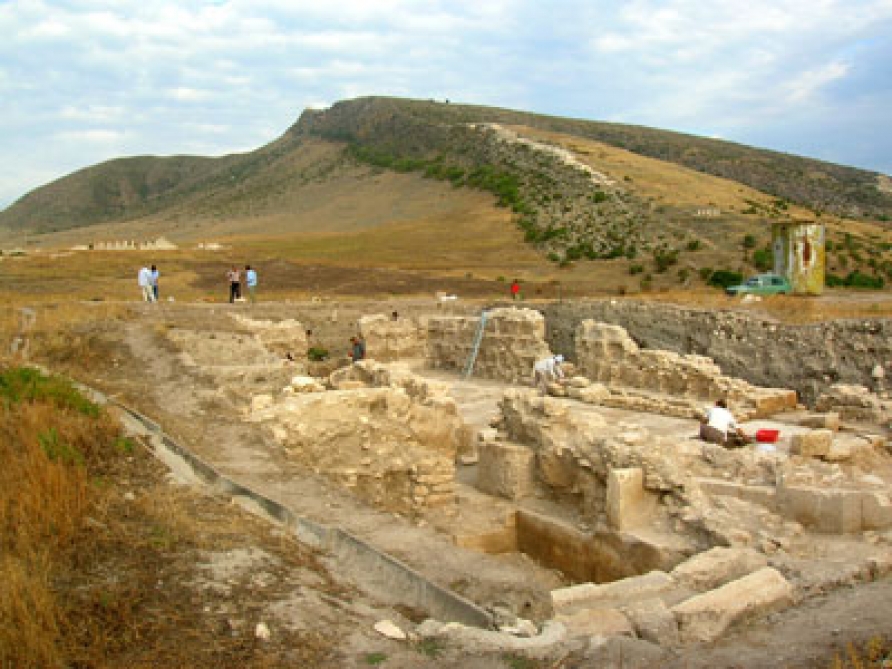ID :
626900
Sat, 04/02/2022 - 14:36
Auther :
Shortlink :
http://m.oananews.org//node/626900
The shortlink copeid
Gavurgala settlement

Baku, April 2, AZERTAC
One of the magnificent archaeological monuments of Karabakh is Gavurgala settlement. The Gavurgala settlement is in Boyahmadli village, which is located 18km north-west of Aghdam district of Azerbaijan. There had been various comprehensive archaeological excavations for learning the Gavurgala settlement in the second half of the twentieth century, mainly between 1950 and 1970s, by various prominent scholars and archaeologists of Azerbaijan of that time, namely, Ziya Bunyadov, Igrar Aliyev, Rahim Vahidov, Ishag Jafarzade, Saleh Gaziyev, Gardashkhan Aslanov, Ideal Narimanov and Rashid Goyushov. According to the archaeological excavations, the Gavurgala settlement is the ruins of an ancient city that dates back to the XIII centuries AD. The ruins of the Gavurgala settlement are considered one of the prosperous cities of Caucasian Albania. The existence of the Christian temple in the settlement is an ideal proof for this argument. Scholars assume that Gavurgala settlement complies with Aluen city, the city that has been summer residence of Albanian Tsars during fourth and fifth centuries. According to Strabon “Enians built a fortified city which is called Eniana in the area of vites at mountains near the Caspian Sea. The Greek weapon, copper vessels and tombs are shown there”. According to this information Eniana city was built by Greek people. Possibly, Enians themselves are descendants of Greek that founded the city and called by local population as “yunan”.
Meanwhile, it is argued that Vites-is a utes of Early Medieval Age and modern Udine who then inhabited in Karabagh region of Azerbaijan, mainly in Aghdam. Therefore, it is supposed that the history of Aghdam goes back to Antique Period. The existence of various ancient human settlements in the territory of Aghdam also proves this fact. Later on, local people populated Aghdam district, whereas they remained Greek for neighbors. Assumption is that name of Eninan comes from there. Later on, the settlers of the region established a city in the area where Gavurgala settlement was located, which was called Aluen and Yunan in the memory of the founders of the city. Visibly the city remained one of the Christian cities of the region. That is why, later on the Muslim population of the region called the city as Gavurgala (castle of infidels).





